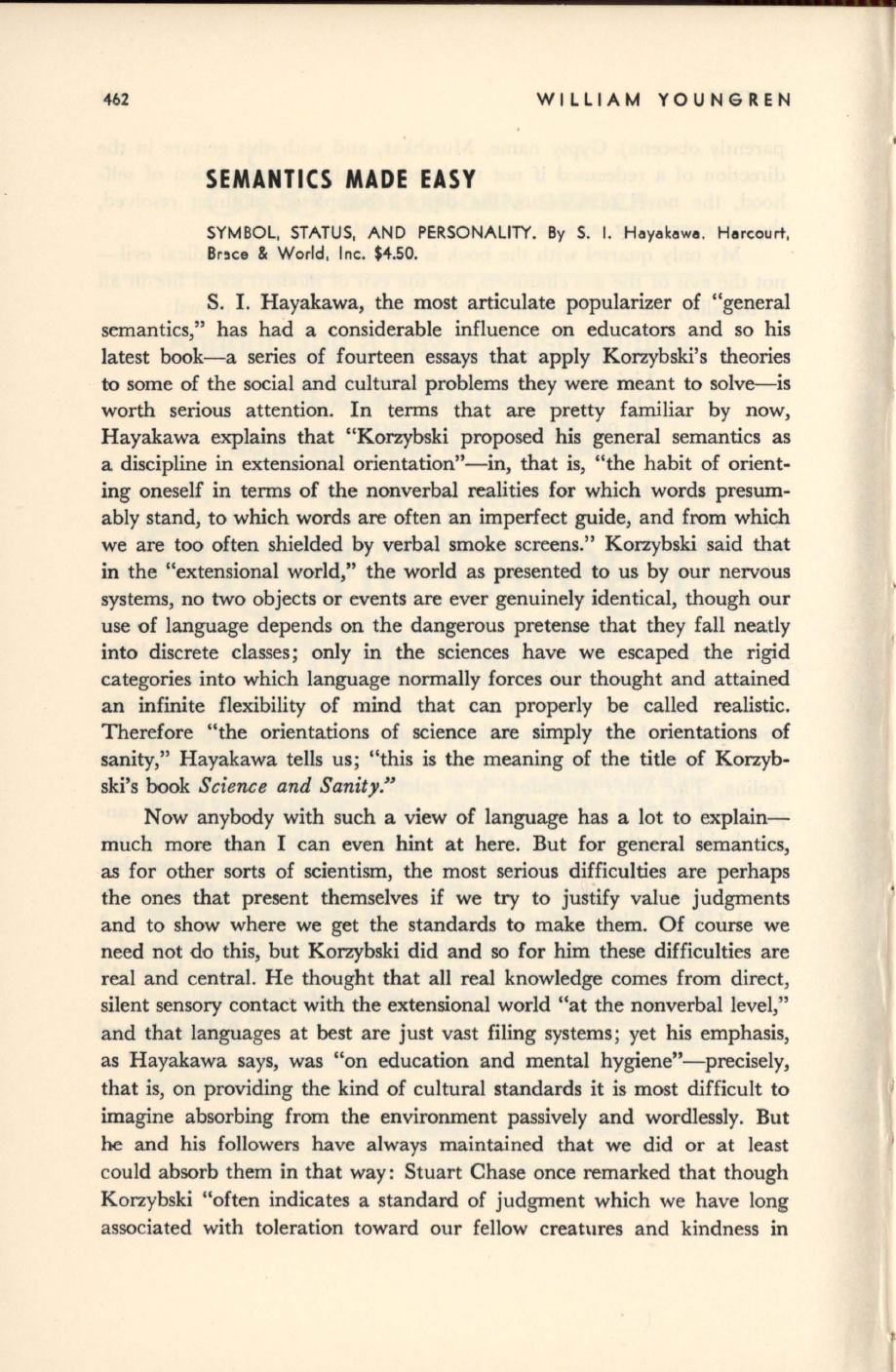
4b2
WILLIAM
YOUNGREN
SEMANTICS MADE EASY
SYMBOL, STATUS, AND PERSONALITY.
By
S.
I. Hoyokowo . Horcourt,
Br,ce
&
World, Inc. $4.50.
S.
I.
Hayakawa, the most articulate popularizer of "general
semantics," has had a considerable influence on educators and so his
latest book-a series of fourteen essays that apply Korzybski's theories
to
some of the social and cultural problems they were meant to solve--is
worth serious attention. In terms that are pretty familiar by now,
Hayakawa explains that "Korzybski proposed his general semantics as
a discipline in extensional orientation"-in, that is, "the habit of orient–
ing oneself in terms of the nonverbal realities for which words presum–
ably stand, to which words are often an imperfect guide, and from which
we are too often shielded by verbal smoke screens." Korzybski said that
in the "extensional world," the world as presented to us by our nervous
systems, no two objects or events are ever genuinely identical, though our
use of language depends on the dangerous pretense that they fall neatly
into discrete classes; only in the sciences have we escaped the rigid
categories into which language normally forces our thought and attained
an infinite flexibility of mind that can properly be called realistic.
Therefore "the orientations of science are simply the orientations of
sanity," Hayakawa tells us; "this is the meaning of the title of Korzyb–
ski's book
Science and Sanity."
Now anybody with such a view of language has a lot to explain–
much more than I can even hint at here. But for general semantics,
as for other sorts of scientism, the most serious difficulties are perhaps
the ones that present themselves if we try to justify value judgments
and to show where we get the standards to make them. Of course we
need not do this, but Korzybski did and so for him these difficulties are
real and central. He thought that all real knowledge comes from direct,
silent sensory contact with the extensional world "at the nonverbal level,"
and that languages at best are just vast filing systems; yet his emphasis,
as Hayakawa says, was "on education and mental hygiene"-precisely,
that is, on providing the kind of cultural standards it is most difficult to
imagine absorbing from the environment passively and wordlessly. But
he and his followers have always maintained that we did or at least
could absorb them in that way: Stuart Chase once remarked that though
Korzybski "often indicates a standard of judgment which we have long
associated with toleration toward our fellow creatures and kindness in


